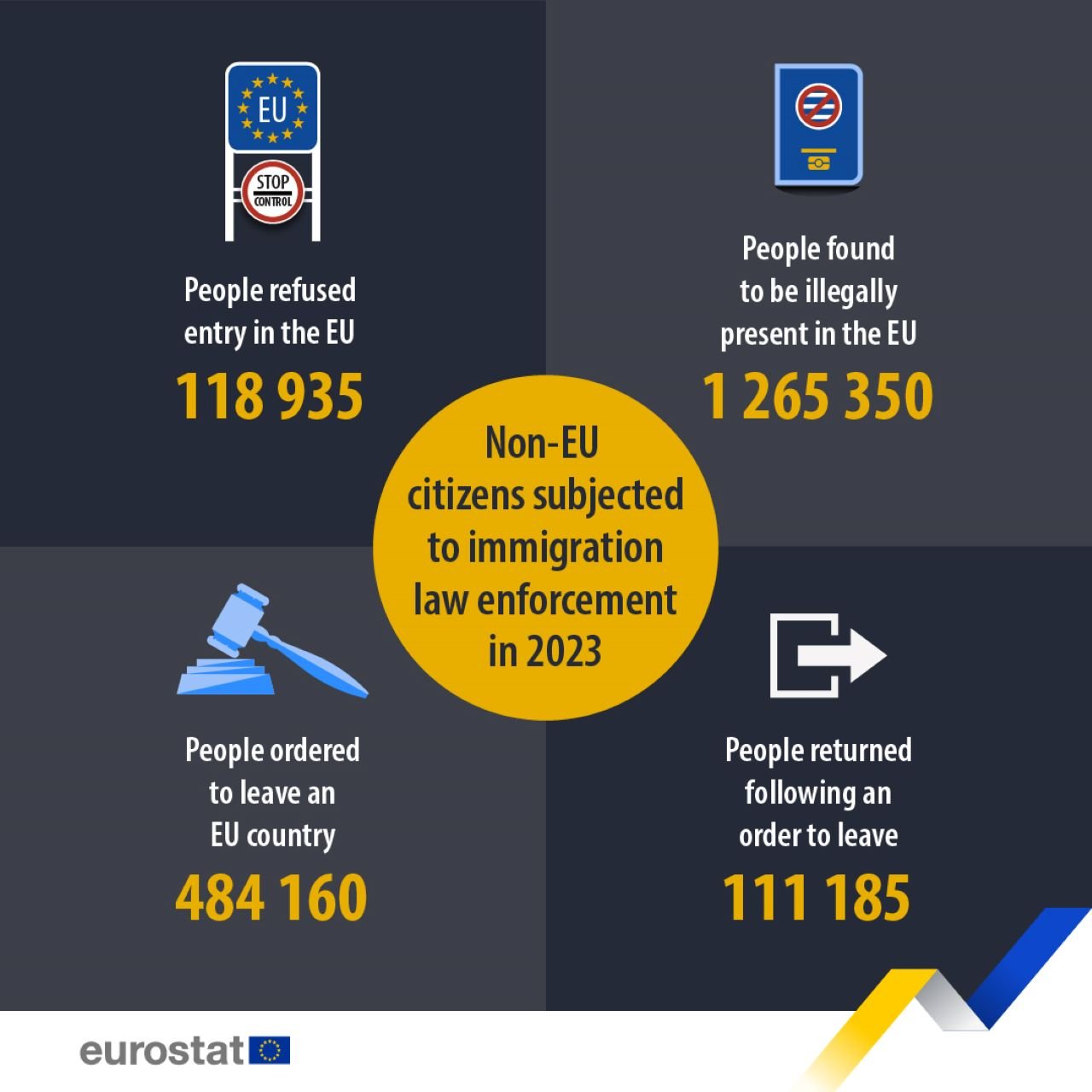Luxembourg, 6 May 2024
In 2023, 118935 non-EU citizens were refused entry into the EU territory at one of its external borders, a 16% decrease compared with 142420 in the previous year.
An additional 1.27 million people were found to be illegally present in one of the EU countries, indicating a 13% increase compared with 1.12 million in 2022.
This information comes from data on the enforcement of immigration legislation published by Eurostat today. The article presents a selection of findings from the more detailed Statistics Explained article (Source datasets: migr_eirfs, migr_eipre, migr_eiord1, migr_eirtn1).
The number of non-EU citizens issued with an order to leave an EU country was 484 160, an increase of 4% compared with 2022 (466 350).
Non-EU citizens returned to another country: +25% compared with 2022
Following an order to leave, 111 185 non-EU citizens were returned to another country (including other EU countries), a 25% increase compared with 88 910 in 2022. Out of the 111 185, 91 465 were returned to the countries outside the EU.
Germany reported the largest number of non-EU citizens returned to another country (15 445), followed by France (12 170) and Sweden (10 330).
Georgians (10 345) topped the list of non-EU citizens returned to another country, followed by Albanians (7 810) and Turks (5 595) – (Source dataset: migr_eirtn).
For more information
- Statistics Explained article on enforcement of immigration legislation statistics
- Statistics Explained article on enforcement of immigration legislation statistics methodology
- Thematic section on migration and asylum
- Database on managed migration statistics
- Migration and asylum in Europe – 2023 edition

